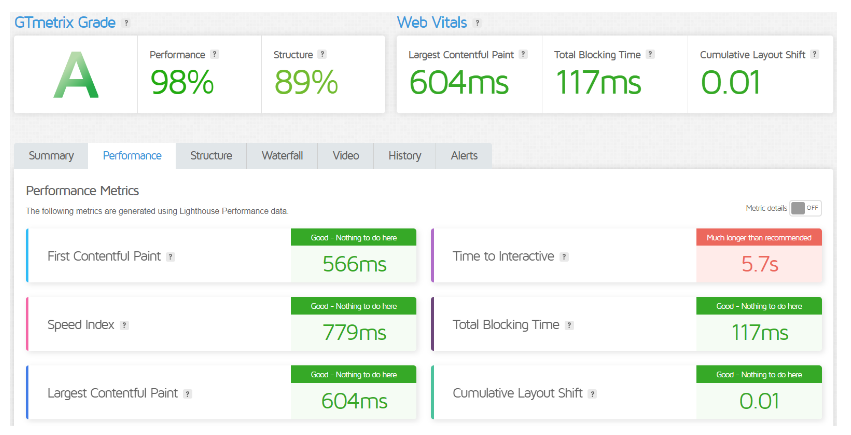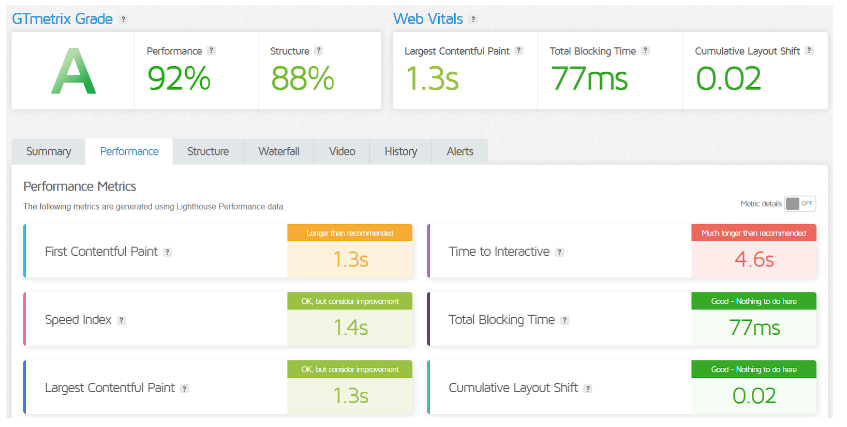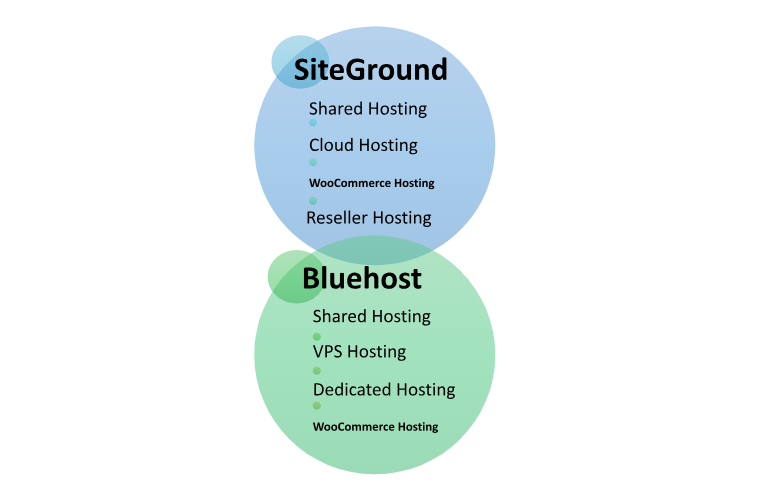SiteGround vs Bluehost – “The Winner Is...
SiteGround is a web hosting provider known for its excellent customer support, high performance, and robust security features. It offers a variety of hosting plans, including shared, cloud, and managed WordPress hosting. Its data centers are globally distributed, ensuring fast loading times, and it includes features like free daily backups, SSL, and caching tools.
Bluehost is one of the most popular web hosting services, especially for beginners, thanks to its user-friendly interface and affordable pricing. It is officially recommended by WordPress.org and provides a range of services, including shared, VPS, and dedicated hosting. Bluehost also offers a free domain for the first year, SSL certificates, and 24/7 customer support.
While both SiteGround and Bluehost cater to similar needs, SiteGround focuses more on advanced features and top-tier support, making it a better choice for developers and businesses. Bluehost, on the other hand, is ideal for beginners and budget-conscious users due to its simplicity and competitive pricing.
SiteGround
Performance: |5.0|
SiteGround is known for its excellent performance, with a focus on speed and reliability. It uses Google Cloud infrastructure, SSD storage, and built-in caching to deliver fast load times. Additionally, its servers are optimized for high traffic and include free CDN integration, ensuring better performance for global audiences.
Uptime: |4.9|
SiteGround boasts an impressive uptime of 99.99%, thanks to its use of Google Cloud infrastructure and proactive server monitoring. Its reliability is enhanced by built-in redundancies and quick response to downtime issues, ensuring websites remain accessible almost all the time.
Customer Service: |4.8|
SiteGround is highly praised for its exceptional customer support, offering 24/7 assistance through live chat, phone, and ticketing systems. Their support team is known for being knowledgeable, quick, and friendly, making it ideal for users who need hands-on help.
Bluehost
Performance: |4.8|
Bluehost offers solid performance for most basic websites, but it may not match SiteGround for speed and uptime in high-demand scenarios. While it provides SSD storage and basic caching, it lacks advanced performance features like server-level optimizations, making it better suited for smaller or less resource-intensive websites.
Uptime: |4.9|
Bluehost offers a decent uptime guarantee of 99.9%, which is sufficient for most users. However, occasional reports of minor downtime suggest it may not be as consistent as SiteGround, especially under heavy loads or during peak traffic times. It is still reliable for small to medium-sized websites.
Customer Service: |4.7|
Bluehost also provides 24/7 customer support via live chat and phone. While it is responsive, the quality of support can be inconsistent, with some users reporting long wait times or less helpful responses compared to SiteGround.
SiteGround is often the preferred choice for those prioritizing excellent customer support, especially for technical issues. Bluehost, while reliable for general queries, may not match the depth of support SiteGround offers for more complex problems.
Overall Comparison SiteGround vs Bluehost
If you’re trying to choose between Bluehost and SiteGround for your hosting needs, understanding their differences is key. Both providers offer a range of options suitable for users of all skill levels, from beginners to seasoned webmasters. However, distinctions in pricing, hosting plans, and additional features could be the deciding factors in determining which one best suits your specific requirements.
| Aspect | SiteGround | Bluehost |
|---|---|---|
| Founded | 2004 | 2003 |
| Known For | High performance, exceptional support | Beginner-friendly, affordable pricing |
| Hosting Types | Shared, Cloud, Managed WordPress | Shared, VPS, Dedicated, Managed WordPress |
| Uptime Guarantee | 99.99% | 99.9% |
| Customer Support | 24/7, highly rated | 24/7, decent but inconsistent |
| Performance Focus | Speed, reliability, advanced optimizations | Basic performance for small websites |
| Free Domain | Not included | Free for the first year |
1. Plans and Pricing
Price and Plan Compression between SiteGround and Bluehost
In a pricing comparison between SiteGround and Bluehost, Bluehost comes out slightly more affordable. SiteGround’s entry-level shared hosting plan is priced at $2.99/month, while Bluehost offers shared hosting starting at just $1.99/month.
Additionally, both hosts provide a variety of features to explore:
| Plan Type | SiteGround | Bluehost |
|---|---|---|
| Starting Price | $2.99/month | $2.95/month |
| Renewal Price | Higher (~$14.99) | Lower (~$10.99) |
| Free Domain | ✖ Not included | Included (1 year) |
| Money-Back Guarantee | 30 days | 30 days |
| Features in Base Plan | More features | Basic features |
Most users opt for shared hosting, so that’s the focus of this comparison.
While both Bluehost and SiteGround include essentials like free SSL certificates, a CDN, and single-site hosting on their basic plans, the differences between the two are significant:
Bluehost’s Basic Plan ($1.99/month): Includes 50GB storage, unlimited bandwidth, and a free domain.
SiteGround’s StartUp Plan ($2.99/month): Offers 10GB storage, 10,000 monthly visits, daily backups, advanced caching, and a free domain.
Despite Bluehost’s lower cost and larger storage, SiteGround provides valuable features like daily backups and advanced caching, which could easily exceed $5/month in value. The choice between them depends on your priorities—whether you need more storage for a personal site or enhanced security and performance for a small business.
It’s also important to note that the advertised prices apply only to the first term, requiring a specific commitment to lock in the deal.
Bluehost raises prices for shorter billing periods but maintains the same renewal rate.
SiteGround offers discounts for longer terms but increases the renewal price for shorter commitments.
Ultimately, the key question is whether the cheapest plan fits your needs and provides the best value. To help you decide, we analyzed all the available plans and here’s what we found.
Hosting Management
| Feature | SiteGround | Bluehost |
|---|---|---|
| Control Panel | Custom Site Tools | cPanel |
| Ease of Use | Intuitive, tailored for developers and users | Beginner-friendly, straightforward |
| One-Click Installs | Available for popular CMS like WordPress | Available for popular CMS like WordPress |
| Account Management | Centralized with advanced tools | Simple and streamlined |
| Scalability | Seamless upgrades between plans | Simple, but fewer advanced options |
| Backup Management | Automated daily backups included | Backups available in higher-tier plans only |
2. Features
SiteGround Provides More Premium Features and Extra Freebies
SiteGround and Bluehost are two well-known names in the web hosting industry. Bluehost often serves as a starting point for beginners exploring web hosting and development, while SiteGround stands out for its speed-optimized WordPress features and reliable customer support. At first glance, the two providers appear quite similar.
Both prioritize WordPress hosting and offer user-friendly interfaces without unnecessary complexity. However, notable differences emerge in pricing and performance.
Here’s a quick breakdown of how these providers stack up in key areas—or skip ahead to the final verdict.
| SiteGround | Bluehost |
|---|---|
| Shared, Cloud, Managed WordPress hosting | Shared, VPS, Dedicated, Managed WordPress hosting |
| SSD storage (10 GB to 40 GB) | SSD storage (50 GB and up, depending on plan) |
| Free SSL and daily backups | Free SSL and backups on higher-tier plans |
| Free Cloudflare CDN | Free Cloudflare CDN |
| Global data centers | Limited to U.S. and select locations |
| No free domain included | Free domain for the first year |
3. Performance
SiteGround vs. Bluehost: Performance
When comparing the performance of SiteGround and Bluehost, SiteGround clearly stands out for its focus on speed. While both providers delivered equally reliable uptime at 99.99%, SiteGround excelled with faster website loading times and better traffic handling.
Uptime and Response Time
Both SiteGround and Bluehost achieved 99.99% uptime during the testing period. Bluehost was monitored for just over two months, while SiteGround was tracked for slightly less than two months.
During this time, SiteGround experienced three brief outages, totaling only seven minutes of downtime. Its response time was impressively consistent, averaging 217ms—one of the best results recorded in our tests.
Page Performance of SiteGround

Page Performance of Bluehost

4. Ease of Use
SiteGround
User Interface: Clean, intuitive interface with advanced tools for developers, but may require a learning curve for beginners.
Custom Control Panel: Offers a custom dashboard that simplifies complex settings, but may be less familiar to users accustomed to cPanel.
Installation: Quick and easy one-click installations for CMS like WordPress, Joomla, and others.
Support for Developers: Offers advanced features like SSH access, staging environments, and Git support for more experienced users.
Bluehost
User Interface: Simple, beginner-friendly cPanel interface that’s easy to navigate for users of all experience levels.
cPanel: Provides the classic cPanel interface, which is familiar to most users and supports common hosting tasks.
Installation: Simple one-click installs for WordPress and other popular CMS options, making it perfect for beginners.
Ease of Management: Basic but effective tools for managing domains, files, and email accounts.
Hosting Provided by SiteGround vs Bluehost

What Our Customers Have to Say?
SiteGround
Excellent Customer Support: Many users praise SiteGround for its quick, helpful, and knowledgeable support team, especially for technical issues.
High Performance & Speed: Customers frequently mention the fast load times and reliability of their websites hosted on SiteGround.
Easy Setup: Users appreciate the simple onboarding process and user-friendly control panel.
Security Features: Reviewers highlight SiteGround’s strong security protocols, including free SSL certificates and proactive threat detection.
Great Value for Money: Many customers believe SiteGround offers top-tier features at competitive prices, especially for developers.
Bluehost
User-Friendly Interface: Customers often commend Bluehost for its simple and easy-to-navigate control panel, ideal for beginners.
Affordable Pricing: Users are generally satisfied with the cost-effectiveness of Bluehost, especially for those just starting their websites.
Solid Customer Service: While support is generally good, some users report mixed experiences with response times and issue resolution.
Good Performance for Small Websites: Bluehost is appreciated for providing decent performance, especially for small to medium-sized websites.
Great for WordPress: Many WordPress users love Bluehost for its seamless integration with the platform and easy installation process.
Advantage of SiteGround and Bluehost
| SiteGround | Bluehost |
|---|---|
| Excellent customer support with fast response times | User-friendly interface, ideal for beginners |
| High performance and speed with global data centers | Affordable pricing with great entry-level plans |
| Advanced security features like free SSL and daily backups | Solid WordPress integration and easy setup |
| Ideal for developers with advanced tools and customization | 24/7 customer support with a good knowledge base |
| Reliable uptime with 99.99% guarantee | Free domain for the first year |
Disadvantage of SiteGround and Bluehost
| SiteGround | Bluehost |
|---|---|
| Higher renewal rates | Limited scalability for high-demand sites |
| Limited storage on lower-tier plans | Mixed quality of customer support |
| More complex for beginners | Occasional slow load times for larger sites |
| Higher pricing compared to competitors | No free domain after the first year |
| Limited features in basic plans | Less performance optimization for larger websites |
5. Support
Customer Support: SiteGround vs. Bluehost
SiteGround and Bluehost have comparable customer service alternatives, such as round-the-clock live chat, phone help, and email support. Both also provide extensive knowledge bases with documentation and tutorials. While Bluehost performed well in our live chat tests, SiteGround outshined it in overall support quality.
One notable difference is accessibility. Bluehost makes it simple to contact support, with a support button available on every page. In contrast, SiteGround encourages users to explore its knowledge base first before reaching out. Additionally, not all issues qualify for live chat with SiteGround—some are redirected to ticket submissions as part of its efficiency-focused approach.
SiteGround
24/7 Availability: Offers round-the-clock support through live chat, phone, and tickets, ensuring help is always available.
Highly Rated: Customers frequently highlight the fast response times and expertise of the support team.
Technical Support: Specializes in technical issues and troubleshooting, making it ideal for advanced users.
User-Friendly: Support staff provides clear, step-by-step guidance, even for beginners.
Support Channels: Multiple support channels available, including live chat and a ticketing system for more complex issues.
Bluehost
24/7 Availability: Provides around-the-clock customer service through phone and live chat.
Mixed Quality: While the support is generally responsive, some users report longer wait times and inconsistent service quality.
Beginner-Friendly: Support staff is helpful for basic website issues and setup, but may struggle with more complex technical questions.
Knowledge Base: Extensive online knowledge base with articles and tutorials for self-help.
Phone Support: Preferred by many users for more immediate and personalized assistance.
Both providers also have robust knowledge bases. Bluehost’s support center is user-friendly, featuring a well-organized search tool and categories like FAQs, WordPress, domains, and email, making it easy to find the information you need.
6. Security
SiteGround Provides a Broader Range of Security Features
When it comes to security, SiteGround clearly takes the lead by including a wide range of robust features in its plans. In contrast, Bluehost offers only basic security and charges extra for additional protections.
Both providers cover the essentials, such as SSL certificates, a CDN, and spam protection. However, SiteGround stands out by offering daily backups as part of its plans. To access this feature with Bluehost, you’ll need to pay $1.99/month or opt for at least the Choice Plus plan.
SiteGround goes even further by including:
Web Application Firewall (WAF): Actively monitors and blocks malicious traffic.
Real-Time Monitoring System: Conducts server checks every 0.5 seconds.
AI Anti-Bot System: Prevents millions of security threats daily.
Achieving a comparable level of security with Bluehost requires an additional $1.99/month, which adds up quickly.
Shared hosting involves multiple users sharing the same server, making strong security crucial. SiteGround addresses this need effectively, while Bluehost’s approach is less comprehensive.
| Security Feature | SiteGround | Bluehost |
|---|---|---|
| SSL Certificates | Free SSL included with all plans | Free SSL included with all plans |
| Daily Backups | Free daily backups included | Backups available on higher-tier plans |
| Security Monitoring | 24/7 proactive security monitoring and alerts | Security monitoring available with higher-tier plans |
| Malware Protection | Automated malware removal and enhanced security | Malware removal available on higher-tier plans |
| Firewall | Built-in firewall and AI anti-bot system | Basic firewall included |
| Two-Factor Authentication | Available for account protection | Available for account protection |
In summary, while both hosts offer basic security, SiteGround provides far more value by going above and beyond. The winner here is clear—SiteGround.
Final Recommendations
| Aspect | SiteGround | Bluehost |
|---|---|---|
| Best For | Developers, businesses, high-traffic sites | Beginners, small websites, budget-conscious users |
| Performance | Superior speed, advanced optimizations | Good performance for small to medium websites |
| Customer Support | Excellent, fast, and expert support | Decent, but can be inconsistent |
| Ease of Use | Suitable for both beginners and advanced users | Extremely beginner-friendly, simple interface |
| Pricing | Higher initial cost, but great value long-term | Affordable for entry-level users, renewals can be higher |
| Security | Strong security features, daily backups | Basic security, more features on higher-tier plans |
Frequently Asked Questions
Bluehost is more beginner-friendly with an easy interface and lower prices.
Yes, both offer managed WordPress hosting with optimized features.
SiteGround offers better performance with faster load times.
Bluehost is cheaper initially, while SiteGround is more expensive but offers advanced features.
SiteGround has faster, more expert customer support.
Bluehost offers a free domain for the first year, SiteGround does not.
Both offer shared, WordPress, and WooCommerce hosting; SiteGround also offers cloud hosting, and Bluehost offers VPS and dedicated hosting.
SiteGround has stronger security features, including daily backups.
Yes, both offer free SSL certificates with all plans.
SiteGround offers better scalability with cloud hosting options.
SiteGround uses a custom control panel; Bluehost uses the user-friendly cPanel.
Yes, both allow cancellations within their 30-day refund period.
Visit Link
Quick Link
Contact Us
Jhansala, Punjab – 140601
info@comparexpert.in
+91 85790 13995
© 2024 comparexpert.in. All rights reserved.




